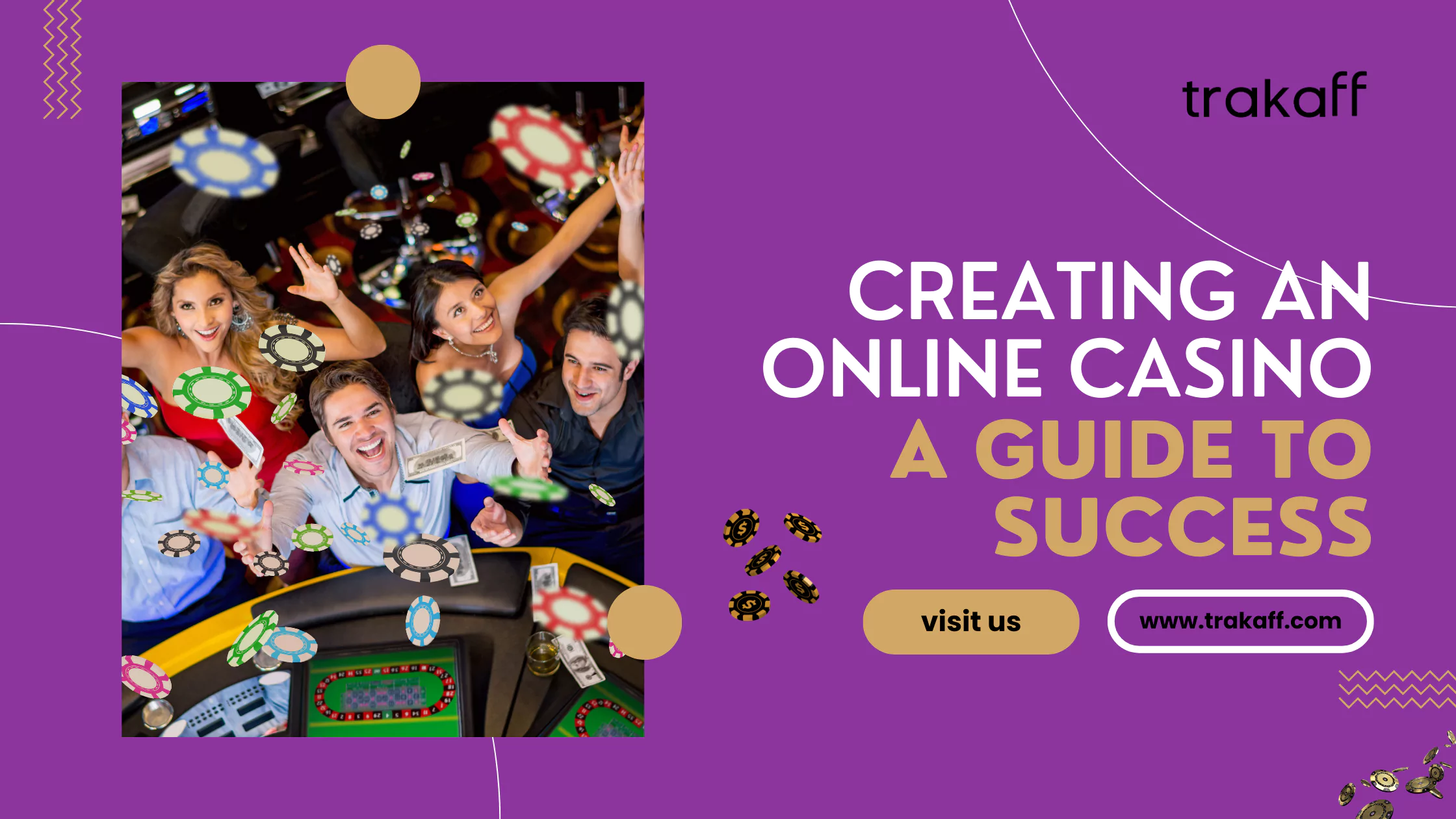The online gaming industry has witnessed exponential growth in recent years, with online casinos leading the charge. As more players seek the thrill and convenience of gambling from the comfort of their homes, the demand for high-quality online casinos has never been higher. If you’re considering creating an online casino, this comprehensive guide will walk you through the entire process, from conception to launch and monetization.
Planning and Preparation
1. Define Your Niche
Before diving into the creation process, it’s crucial to define your niche. Determine the types of games you want to offer, your target audience, and the unique selling propositions that will set your casino apart from competitors.
2. Obtain Necessary Licenses and Permits
To operate an online casino legally, you must obtain the necessary licenses and permits from relevant authorities. Research the legal requirements in your target markets and apply for the appropriate licenses.
3. Choose a Reliable Gaming Software Provider
Selecting a reputable gaming software provider is one of the most important decisions you’ll make. Look for providers with a proven track record, a wide selection of games, and robust security measures. Popular choices include Microgaming, NetEnt, and Playtech.
4. Design a User-Friendly Website
Your online casino’s website is the face of your business. Invest in a professional design that is visually appealing, easy to navigate, and optimized for various devices. Ensure that your site loads quickly, is mobile-friendly, and provides a seamless user experience.
Game Selection and Integration
1. Curate a Diverse Game Portfolio
Offer a wide variety of games to cater to different player preferences. Include popular categories such as slots, table games (blackjack, roulette, and poker), live dealer games, and progressive jackpots.
2. Ensure Fairness and Randomness
To maintain player trust, it’s essential to use a reliable Random Number Generator (RNG) to ensure fairness and randomness in all games. Regularly audit your games to verify their integrity.
3. Integrate Games Seamlessly
Work with your software provider to integrate games seamlessly into your platform. Ensure that games load quickly, function smoothly, and provide a consistent user experience across devices.
Payment Processing and Security
1. Offer Multiple Payment Methods
Provide a wide range of secure and convenient payment methods to cater to different player preferences. Include options such as credit/debit cards, e-wallets (PayPal, Skrill, Neteller), bank transfers, and cryptocurrencies.
2. Implement Security Measures
Protecting player data and transactions is paramount. Implement robust security measures such as SSL encryption, firewalls, and fraud detection systems. Regularly update your security protocols to stay ahead of potential threats.
3. Ensure Fast and Secure Withdrawals
Process player withdrawals promptly and securely. Set clear withdrawal limits and processing times, and communicate these to players transparently.
Marketing and Player Acquisition
1. Develop a Compelling Marketing Strategy
Create a comprehensive marketing strategy that combines digital marketing channels such as SEO, PPC, social media, and affiliate marketing. Craft targeted messaging that highlights your casino’s unique selling points and attracts your desired player demographic.
2. Offer Attractive Bonuses and Promotions
Attract new players and retain existing ones with generous bonuses and promotions. Offer welcome bonuses, free spins, cashback, and loyalty programs to incentivize players to choose your casino over competitors.
3. Leverage Social Proof and Testimonials
Encourage satisfied players to leave reviews and testimonials on your website and social media channels. Social proof can significantly influence potential players’ decisions to join your casino.
Customer Support and Retention
1. Provide 24/7 Customer Support
Offer round-the-clock customer support through multiple channels, including live chat, email, and phone. Ensure that your support team is knowledgeable, responsive, and able to resolve player issues efficiently.
2. Foster a Loyalty Program
Implement a loyalty program that rewards players for their continued patronage. Offer exclusive perks, personalized promotions, and VIP treatment to high-value players. Use data analytics to track player behavior and tailor rewards to individual preferences.
3. Personalize the Player Experience

Leverage player data to personalize the gaming experience. Use segmentation and targeted messaging to recommend games, bonuses, and promotions that align with each player’s interests and behaviors. Personalization enhances player engagement and loyalty.
Monetization and Revenue Streams
1. Optimize Game Revenue
Maximize revenue from your game portfolio by optimizing game settings, such as return-to-player (RTP) percentages, bet limits, and bonus structures. Continually analyze game performance and adjust settings to balance player satisfaction and profitability.
2. Diversify Revenue Streams
Don’t rely solely on game revenue. Explore additional revenue streams such as affiliate marketing, sponsorships, and partnerships with game developers. Diversifying revenue ensures financial stability and growth.
3. Implement a Responsible Gaming Policy
While maximizing revenue is important, it’s equally crucial to promote responsible gaming. Implement a comprehensive responsible gaming policy that includes self-exclusion options, deposit limits, and referral to support services for problem gamblers. Responsible gaming builds trust and enhances your casino’s reputation.
The Creation Process
1. Select a Development Team
Assemble a skilled development team with expertise in web development, UI/UX design, game integration, and cybersecurity. Consider hiring specialists or partnering with agencies specializing in iGaming.
2. Develop a Detailed Project Plan
Create a detailed project plan outlining timelines, milestones, and resource allocation. Break down the project into phases, such as planning, development, testing, and launch. Use project management tools to keep the team organized and on track.
3. Build and Test the Platform
Work closely with your development team to build and test the online casino platform. Conduct thorough testing of all features, games, and payment systems to ensure functionality, security, and user experience.
4. Launch and Promote
Once the platform has been thoroughly tested and is ready for launch, it’s time to introduce your online casino to the world. Create a launch event or promotional campaign to generate buzz and attract initial players. Utilize your marketing channels to spread the word, offering special launch bonuses and incentives to encourage sign-ups.
Post-Launch and Continuous Improvement
1. Monitor Performance and Analytics
After launch, continuously monitor your online casino’s performance using analytics tools. Track key metrics such as player acquisition, retention, game popularity, and revenue. Use this data to make informed decisions and optimize your strategies.
2. Engage with Players
Maintain open lines of communication with your players. Encourage feedback and use it to identify areas for improvement. Engage with players through newsletters, social media, and community forums to foster a sense of loyalty and belonging.
3. Keep Updating Games and Features
The iGaming industry is constantly evolving, with new games and technologies emerging regularly. Stay ahead of the curve by continually updating your game library and introducing new features. Regularly review and refresh your content to keep players engaged and excited.
4. Expand into New Markets
As your online casino grows, consider expanding into new markets. Research potential target markets, their regulations, and cultural preferences. Adapt your strategies accordingly and obtain necessary licenses to enter these markets legally.
Challenges and Solutions
1. Competition
The online casino market is highly competitive. Stand out by focusing on your unique value proposition, offering exceptional customer service, and continuously innovating. Stay agile and adapt to market changes quickly.
2. Regulatory Compliance
Navigating the complex web of iGaming regulations can be challenging. Work with legal experts to ensure compliance with relevant laws and licensing requirements in your target markets. Stay updated on regulatory changes and adapt your strategies accordingly.
3. Player Trust and Safety
Building and maintaining player trust is crucial. Implement robust security measures, fair gaming practices, and responsible gaming policies. Be transparent in your operations and communications to foster a sense of trust and safety among players.
Conclusion
Creating a successful online casino requires careful planning, execution, and continuous improvement. By following this guide, you’ll be well-equipped to navigate the complexities of creating an online casino. From planning and preparation to game selection, payment processing, marketing, and post-launch strategies, this guide covers all the essential aspects of building a thriving iGaming business.
Remember, the online casino industry is dynamic and ever-changing. Stay updated with the latest trends, technologies, and regulatory developments to ensure your casino remains competitive and compliant. Foster a culture of innovation, player-centricity, and responsible gaming to build a strong brand reputation and loyal player base.
